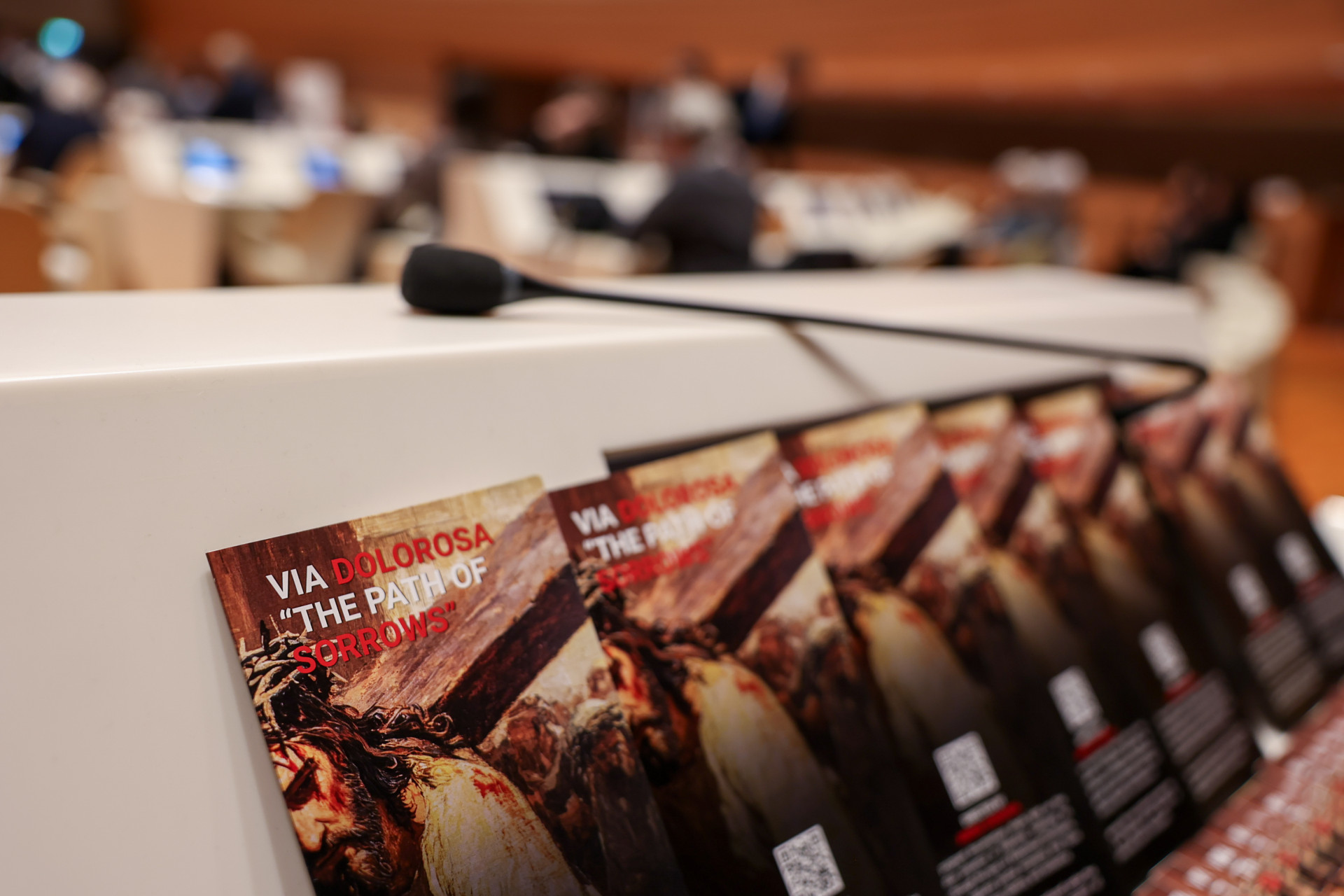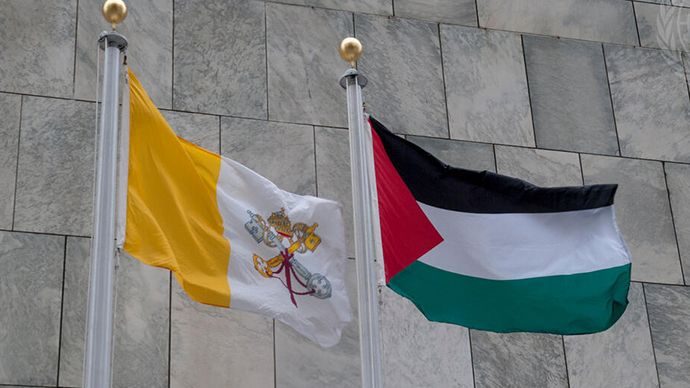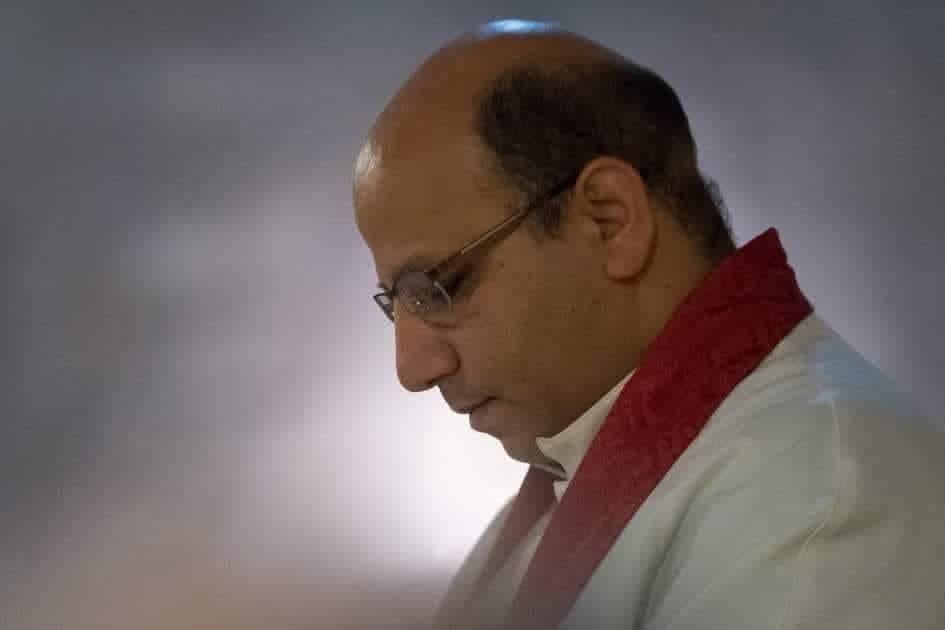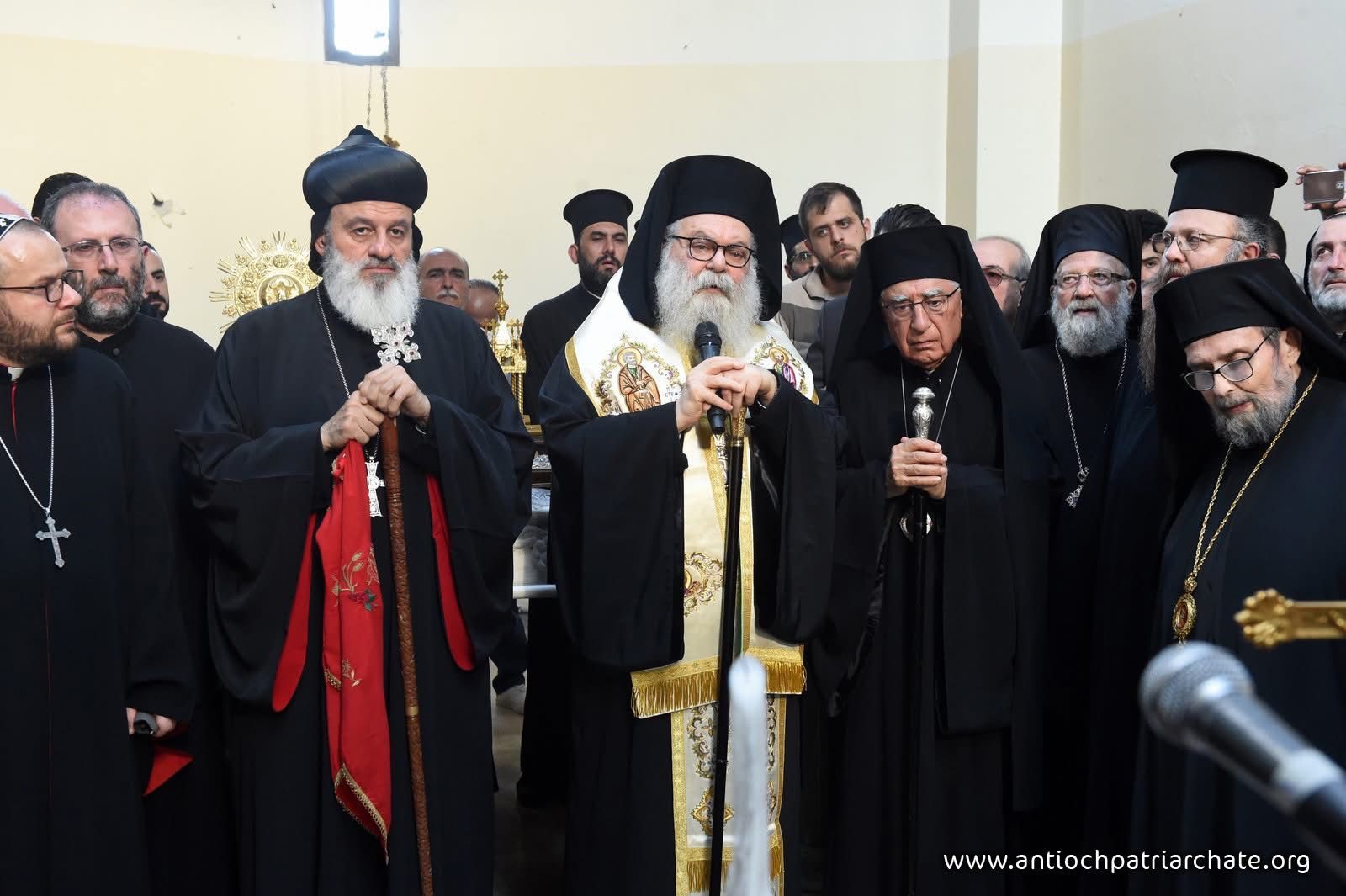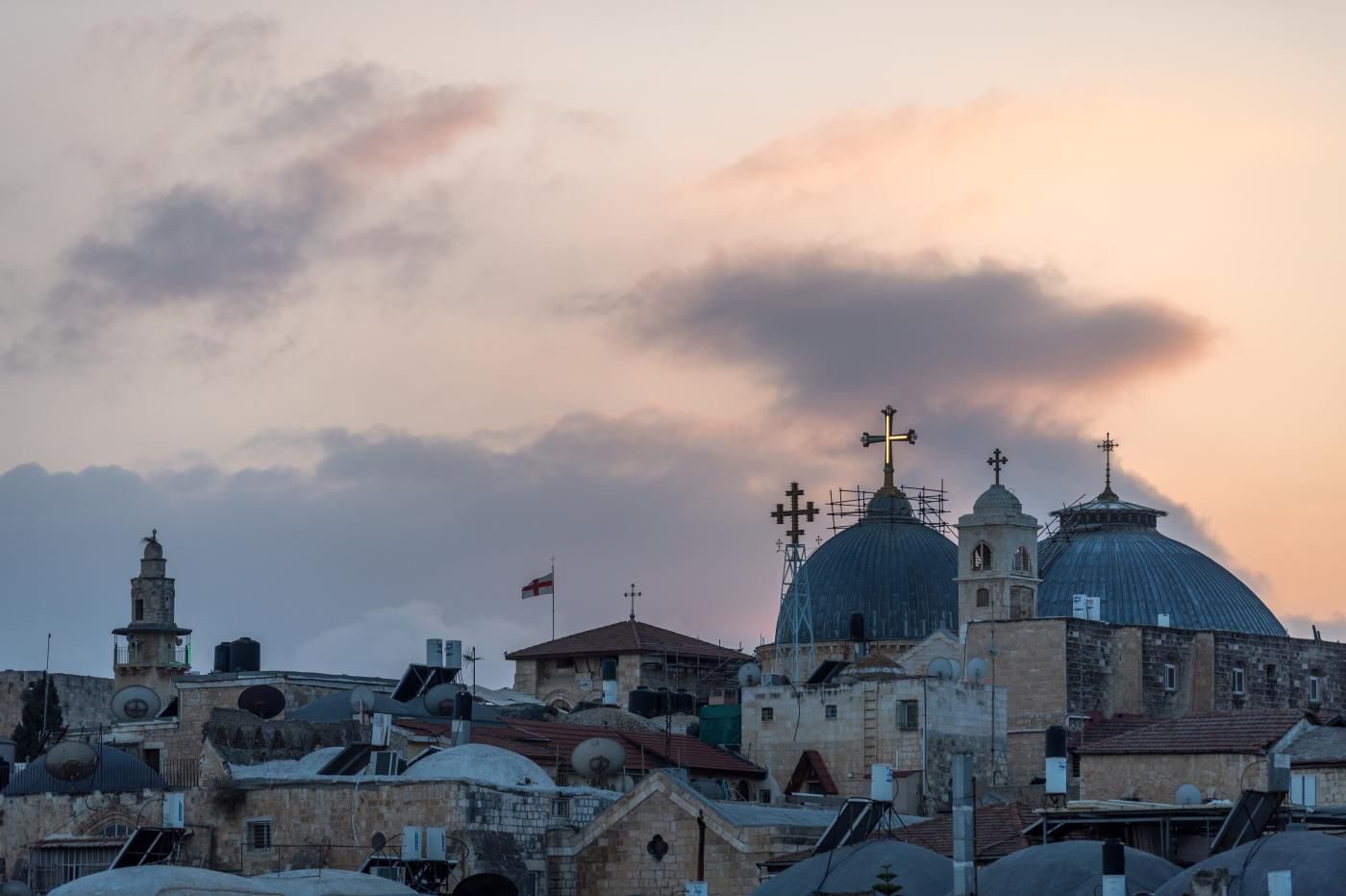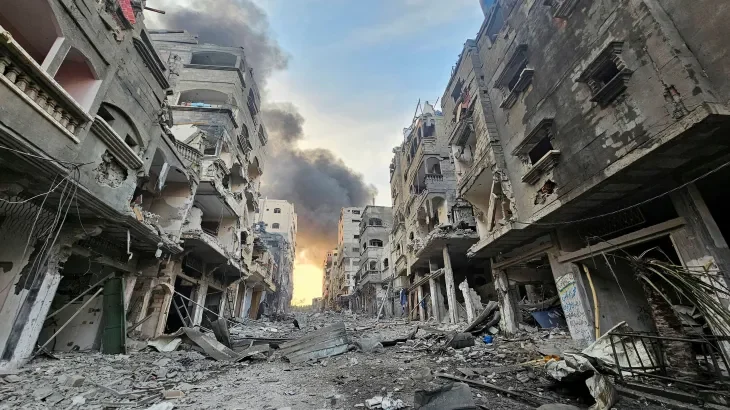In a world dominated by competing narratives and distorted portrayals, the documentary Via Dolorosa: Palestine’s Story Through the Eyes of Its Christians offers a powerful testimony. It documents the suffering and resilience of Palestinian Christians in the face of Israeli occupation and systemic marginalization. This groundbreaking work is more than a historical account; it is a record of perseverance, tracing the deep-rooted Christian presence in Palestine while shedding light on the ongoing challenges Palestinian Christians endure.
The film premiered in Geneva under the patronage of the World Council of Churches, drawing an audience of prominent religious, political, and media figures, underscoring its profound significance. Among the distinguished attendees were His Beatitude Patriarch Theophilos III, Patriarch of Jerusalem and All Palestine; Rev. Prof. Dr. Jerry Pillay, Secretary General of the World Council of Churches; and Dr. Ramzi Khouri, Member of the PLO Executive Committee and Head of the Higher Presidential Committee for Church Affairs in Palestine. The presence of diplomats, scholars, and intellectuals further reflected the film’s wide-reaching impact and the deep interest it has garnered.
In their opening remarks, Rev. Prof. Dr. Jerry Pillay, Patriarch Theophilos III, and filmmaker Amira Hanania emphasized the film’s role as an essential historical record. They highlighted the urgent need to support the Palestinian Christian presence amidst mounting challenges. Attendees noted that this documentary restores attention to the struggle of Palestinian Christians, reaffirming that Palestinian Christians are an integral part of the nation’s resistance and heritage.
Structured into four parts, the documentary takes viewers on a historical journey, beginning with the birth of Jesus Christ and spanning various eras and periods of persecution, from Roman rule to the Islamic and Ottoman eras, through the Nakba, and into the ongoing Israeli occupation. The film highlights the pivotal role Palestinian Christians have played in the national struggle, their churches serving as centers of resistance and resilience. It also examines contemporary threats that have led to a decline in their population, driven by forced displacement and systemic discrimination.
What sets Via Dolorosa apart is its unwavering commitment to truth. It is more than a documentary, it is a voice for Palestinian Christians, a community whose identity has often been marginalized. The film makes it clear that their dwindling numbers are not the result of voluntary migration but rather a consequence of systemic oppression and deliberate efforts to uproot them from their homeland.
At the heart of this project stands Amira Hanania, a distinguished Palestinian diplomat, journalist, and advocate. As a member of the Higher Presidential Committee for Church Affairs in Palestine and its representative in Europe, she has dedicated her career to bringing global attention to the plight of Palestinian Christians. With over two decades of experience in media and journalism, Hanania has masterfully bridged politics and storytelling, using her expertise to shed light on suppressed realities.
Within the Palestinian media landscape, Hanania has emerged as a courageous voice, exposing injustices and challenging efforts to erase Palestinian Christian identity. Her career began as a political correspondent and presenter, where her in-depth analysis and fearless interviews earned her the Arab League’s Media Excellence Award in 2018. Recognizing the power of visual storytelling, she transitioned into documentary filmmaking, understanding that film can be a potent tool for shaping public awareness. Through Via Dolorosa, she has crafted a work of resistance that solidifies the Palestinian narrative in the face of relentless distortion.
Beyond her media accomplishments, Hanania holds a master’s degree in Arab and International Studies from Al-Quds University, which has deepened her political and diplomatic perspective. In her role in the Higher Presidential Committee for Church Affairs, she has been a steadfast advocate for Palestinian Christians, representing their cause on international platforms. She asserts that their presence in Palestine is not merely a historical relic but a living reality that must be preserved and protected against displacement and persecution.
As a Christian from Bethlehem – the birthplace of Christ – Hanania carries both her national and religious identity with a profound sense of responsibility. Via Dolorosa is not just a film; it is a cry for justice, a defiant act of remembrance, and a living testament to the resilience of Palestinian Christians who refuse to be erased from history.
Through this work, Hanania is more than a filmmaker, she is a voice for the silenced, a bridge connecting the struggles of Palestinian Christians to the global consciousness. Her message is clear: Palestinian Christians are not outsiders in their homeland; they are an inseparable part of Palestine, with roots that run deep into its sacred history.
Via Dolorosa has been translated into English, French, and Spanish to ensure its message reaches audiences worldwide. The film premiered at the Palace of Nations in Geneva on February 18, 2025, under the patronage of the World Council of Churches. It received widespread acclaim, drawing much-needed attention to the plight of Palestinian Christians, whose struggle has too often been overlooked in global political discourse.
More than a documentary, Via Dolorosa is a declaration of truth, a call for justice, a message of resilience and a historical record that will stand as a witness to the injustices endured by the Palestinian people as a whole. Through this project, Amira Hanania has proven that media can be a formidable tool for resistance and that the Palestinian narrative can, and must be heard, despite all efforts to suppress it. This film is a call to conscience, urging the world to see Palestine through the lens of truth and to recognize that the struggle of Palestinian Christians is not a secondary issue, it is an integral part of the broader Palestinian cause.

